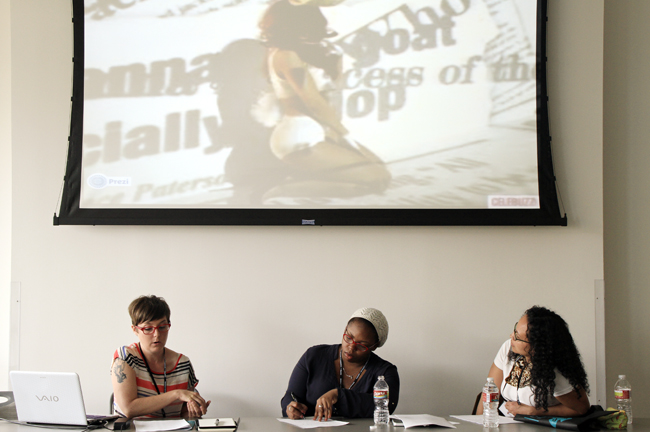From queer approaches to family studies, to feminism in the Mormon church, to sexual agency in Rihanna’s new album, the 20th Annual Graduate Student Conference for Emerging Scholarship in Women’s & Gender Studies explored a variety of topics and disciplines.
Graduate and undergraduate students, representing disciplines from sociology, women’s and gender studies and the sciences, shared their research with colleagues and scholars during the conference Thursday and Friday at the Student Activity Center.
Titled “The Feeling Body — Feeling The Body,” this year’s conference highlighted a new development in women’s & gender studies called affect theory.
The conference was divided by concurrent sessions that grouped researchers by themes within the context of affect theory. Themes of the conference included “Ambiguous Freedoms and Agency: Racialized Performance and Sexuality,” “The Academy and The Body” and “Sexual Violence and Marginality,” among other topics.
Michael Pascual, a women’s and gender studies graduate student and event co-organizer, said affect theory is an intellectual movement within women’s and gender studies that focuses on feelings as a source of knowledge.
“It’s a recent development that focuses on the body and using the body as an analytic tool might redirect or reorient questions that feminist and queer scholars have been asking,” Pascual said. “It’s an attempt to complicate how we’ve been thinking about power, politics, identity, gender [and] sexuality.”
The role of the body in creating knowledge is also a crucial part of affect theory, said Victoria Dominguez, a women’s and gender studies graduate student also co-organizing the event.
“In the tradition of academia there has always been a historic dualism between the mind and the body,” Dominguez said. “This conference is asserting the role of the body.”
Ann Cvetkovich, a professor of English and women’s and gender studies, gave the keynote address of the conference.
Cvetkovich, who is a proponent of affect theory, said feelings can be a valuable and important source of knowledge about the world.
“[Cvetkovitch] has been crucial in the turn to affect,” Pascual said.
This year also marks a new high in popularity for the annual gathering, Dominguez said.
“It’s sometimes been a one-day conference, but because of its popularity it has expanded to a two-day conference,” Dominguez said. “In the past it was pretty customary to have 20 presentations, but now we have 55.”
Sociology graduate student Brandon Robinson said the women’s and gender studies conference serves as a jumping-off point for researchers to publish and present their research elsewhere.
“A lot of research here goes on to be presented at larger conferences,” Robinson said. “I know a lot papers here go on to be published.”





















